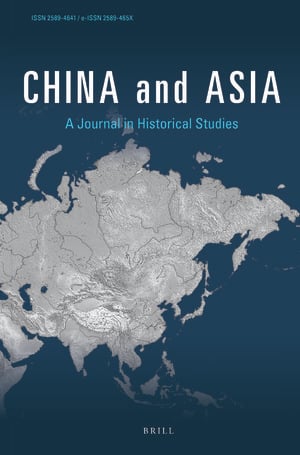Source: Inside Higher Education (5/20/19)
X-ing Out Xinjiang
By Elizabeth Redden
A China studies scholar says a journal editor censored him by striking out a section of a book review critical of the Chinese government’s policies in Xinjiang. The editor denies it was censorship.
In yet another case of alleged censorship in the China studies field, a scholar says a journal editor censored his book review by requesting the deletion of an opening paragraph that contextualized the book in light of Chinese Communist Party policy toward members of the Uighur ethnic minority group in the region of Xinjiang. Human rights groups estimate that China has detained as many as one million Uighurs in camps as part of a mass “re-education” drive aimed at forcing the assimilation of Uighurs and other Muslim-majority groups.
The scholar, Timothy Grose, an assistant professor of China studies at Rose-Hulman Institute of Technology, says the requested deletions — and the refusal over multiple months to publish the piece after he did not consent to them — constitute an “open-and-shut” case of censorship, and he has noted that the editor in chief of the journal is on record defending Chinese government policy in Xinjiang.
The journal’s editor in chief, Han Xiaorong, a professor and head of the department of Chinese culture at Hong Kong Polytechnic University, says he did suggest the deletions but denies that his proposed edits constituted censorship. Han said the review was not published because miscommunications between him and the book review editor led to the commission of two reviews, including the review in question, that were not “directly relevant” to the journal’s theme.
The case of alleged censorship involves a new journal, China and Asia: A Journal in Historical Studies, published by Brill, a Dutch publisher of more than 270 journals. Grose said he was commissioned by the journal to write a review of the book Oil and Water: Being Han in Xinjiang (University of Chicago Press), an ethnographic study of members of the majority Han ethnic group who have settled in Xinjiang, written by the anthropologist Tom Cliff.
Grose opened his review of Cliff’s book with a paragraph discussing the detention of Uighurs in “concentration re-education centers” because, he wrote, he believed Cliff’s argument “afforded much-needed clarity to the confounding situation in the region.” He submitted the review Nov. 7. The next day he received an email from the book review editor saying the editorial staff had suggested a “minor change”: the deletion of the first paragraph, as well as two subsequent sentences (see image of the deletions above).
“I was more confused than upset,” Grose wrote in an account he published last week on the Los Angeles Review of Books’ website ChinaChannel.org. “I spent the evening and next morning trying to make sense of this editorial decision, before responding in an email asking for clarification and expressing my concerns over censorship. The book review editor forwarded my note to the editor in chief of the journal, Han Xiaorong.”
“After waiting over a month for the editor’s response, to no avail, I sent a follow-up email in mid-December. The book review editor responded within a week and expressed serious doubt over the possibility of publishing the piece. He did not offer specific reasons behind the decision.” After three more months of silence, Grose wrote, he took to Twitter on April 5 to offer the review to another outlet. The Asia Dialogue, an online magazine published by the University of Nottingham’s Asia Research Institute, published it three days later.
The editor in chief of the journal, Han, acknowledged in a written response to Grose’s article that he suggested the deletions, but he disputed that the suggestions constituted censorship.

 Grose said he thinks this is an “open-and shut case” of an editor deliberately censoring his review. “He [Han] incriminates himself in his response to my rendering of the events that transpired by saying, yes, initially I did delete the entire first paragraph and the first few sentences of the second paragraph because I thought they were political,” Grose said. “To me, that is the epitome of censorship when you find something political and you don’t agree with those politics and you decide not to let an individual express those ideas.”
Grose said he thinks this is an “open-and shut case” of an editor deliberately censoring his review. “He [Han] incriminates himself in his response to my rendering of the events that transpired by saying, yes, initially I did delete the entire first paragraph and the first few sentences of the second paragraph because I thought they were political,” Grose said. “To me, that is the epitome of censorship when you find something political and you don’t agree with those politics and you decide not to let an individual express those ideas.”